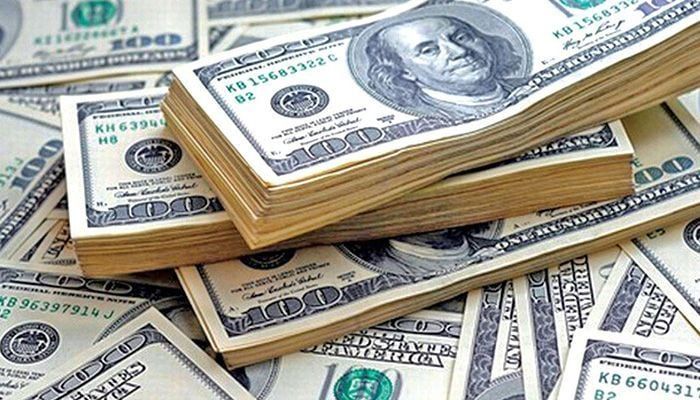
Desk Report
Publish: 16 Oct 2023, 01:29 pm

US Dollar || Symbolic Photo
A delegation of the International Monetary Fund (IMF) has held a meeting with senior officials of state-owned and private banks in Bangladesh to address numerous key issues affecting the banking sector.
The discussions on Monday (October 16) focused on matters such as the high rate of defaulted loans, the transition to a fully market-oriented exchange rate, and the potential role of prudent interest rate policies in controlling inflation.
Members of the Association of Bankers, Bangladesh (ABB), including its Chairman Salim RF Hossain, and Syed Mahbubur Rahman, managing director of Mutual Trust Bank (MTB) attended the meeting.
The IMF has emphasized the need for a swift shift to a market-oriented exchange rate as part of the loan agreement. In the central bank's last monetary policy, Governor Abdur Rouf Talukder had stated the goal of achieving a market-oriented exchange rate by September. However, even though the deadline has passed, the exchange rate has yet to become fully market-oriented.
IMF delegation's mission includes a review of the utilization of funds from the first loan installment of its $4.7 billion loan programme before disbursing the second installment as part of the agreement with Bangladesh.
Traditionally, the IMF held discussions with the government, ministries, departments, and regulatory bodies before and after loan negotiations. However, this is the first time that the IMF has directly engaged with banking sector stakeholders.
During the meeting, the IMF delegates inquired about strategies for mitigating the high rate of non-performing loans and sought insight into the effectiveness of Bangladesh Bank's move toward a market-oriented exchange rate, according to Mahbubur.
Discussions also revolved around the possibility of achieving a fully market-oriented exchange rate by December, with bankers indicating that this transition may take until early next year.
Banking industry leaders emphasized the necessity of political commitment and stricter banking regulations to reduce non-performing loans. Small and medium-sized industries, which are import-dependent, have been particularly affected by the scarcity of dollars.
One of the terms of the loan agreement is for Bangladesh to increase remittances, which have been decreasing in recent months. The discussions included strategies to boost remittance inflow and address the practice of expatriates conducting transactions in the informal hundi market due to higher open market dollar rates compared to banks.
Currently, the ABB and the Bangladesh Foreign Exchange Dealers' Association (BAFEDA), play a key role in determining the exchange rate for the Bangladeshi taka against the dollar. They are in negotiations with Bangladesh Bank to determine buying and selling prices, thus eliminating multiple dollar rates.
In the banking channel, the exchange rate for purchasing dollars (covering all types of export income, service sector, and remittances from abroad) is fixed at Tk 110. On the other hand, the exchange rate for selling dollars (for imports, interbank transactions, and remittances abroad) is capped at a maximum of Tk 110. 50. This rate has been in effect since Sept 25.
Subscribe Shampratik Deshkal Youtube Channel
© 2024 Shampratik Deshkal All Rights Reserved. Design & Developed By Root Soft Bangladesh